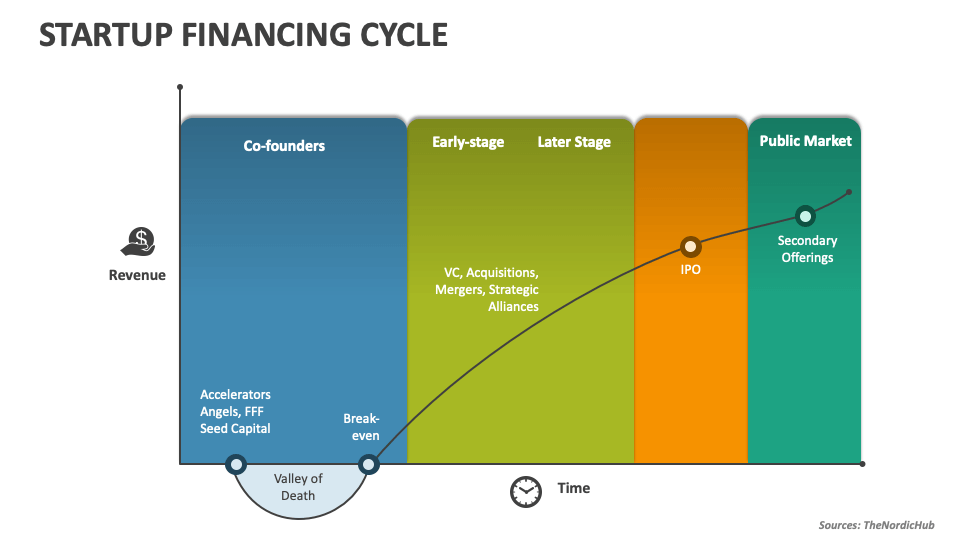
Embarking on a startup journey is like setting sail on an uncharted sea. You have a vision, a dream, and a plan, but you need the wind in your sails—that is, the right funding. Finding the best business funding options for startups can be as challenging as navigating a stormy ocean. But fear not, we're here to guide you through the choppy waters of startup financing.
Understanding Startup Financing
Startup financing is the lifeblood of any new venture. It's the fuel that turns your innovative idea into a reality. But where do you start? Let's break down the primary options available to you.
Seed Capital: Planting the First Seeds
Seed capital is the initial funding that helps you get your startup off the ground. Think of it as the first seeds you plant in your garden. These funds are typically used for market research, product development, and building your initial team.
Sources of Seed Capital
- Friends and Family: Often the first port of call, friends and family can provide a safety net of initial funding.
- Angel Investors: These are wealthy individuals who invest in startups in exchange for equity. They can provide not just money but also valuable mentorship.
- Crowdfunding: Platforms like Kickstarter and Indiegogo allow you to raise small amounts of money from a large number of people.
Equity Funding: Sharing the Pie
Equity funding involves giving away a portion of your company in exchange for capital. It's like sharing a slice of your pie with someone who believes in your recipe.
Types of Equity Funding
- Venture Capital: Venture capitalists (VCs) are professional investors who manage funds on behalf of others. They typically invest in high-growth startups.
- Private Equity: Private equity firms invest in companies that are not publicly traded. They often look for established businesses with growth potential.
- Equity Crowdfunding: Similar to traditional crowdfunding, but investors receive equity in the company instead of rewards.
Small Business Grants: Free Money for Your Venture
Small business grants are non-repayable funds provided by governments, corporations, or foundations to support startups. It's like receiving a gift that keeps on giving.
Where to Find Small Business Grants
- Government Programs: Many governments offer grants to support small businesses. Check your local government's website for available programs.
- Corporate Grants: Some corporations offer grants to startups that align with their values or goals.
- Non-Profit Organizations: Non-profits often provide grants to support social enterprises or startups with a positive impact.
Other Funding Options
Business Loans
Traditional bank loans or lines of credit can provide the capital you need. However, they come with the obligation to repay with interest.
Revenue-Based Financing
This involves investors providing capital in exchange for a percentage of your future revenues. It's a win-win as you only pay back when you start making money.
Accelerators and Incubators
These programs provide funding, mentorship, and resources to help startups grow. They often take a small equity stake in return.
Choosing the Right Funding Option
Choosing the right funding option is like picking the right tool for the job. You need to consider your startup's stage, your financial needs, and your long-term goals.
Factors to Consider
- Stage of Your Startup: Different funding options are suitable for different stages. Seed capital is ideal for early-stage startups, while venture capital is better for growth-stage companies.
- Amount of Funding Needed: Some options, like crowdfunding, are better for smaller amounts, while others, like venture capital, can provide larger sums.
- Control Over Your Company: Equity funding means giving away a portion of your company. Consider how much control you're willing to share.
Conclusion
Finding the best business funding options for startups is a crucial step in turning your dream into a reality. Whether you opt for seed capital, equity funding, small business grants, or other options, the key is to align your choice with your startup's needs and goals.
Remember, every successful startup started with an idea and the right funding. So, take the plunge, explore your options, and set sail on your entrepreneurial journey.
FAQs
What is the difference between seed capital and venture capital?
- Seed capital is the initial funding used to start a business, often provided by friends, family, or angel investors. Venture capital is a type of equity funding provided by professional investors to high-growth startups.
How do I apply for small business grants?
- You can apply for small business grants through government websites, corporate grant programs, or non-profit organizations. Each program will have its own application process and requirements.
What are the benefits of equity crowdfunding?
- Equity crowdfunding allows you to raise funds from a large number of investors in exchange for equity. It can also provide valuable market validation and a community of supporters.
Should I consider a business loan for my startup?
- Business loans can provide the capital you need, but they come with the obligation to repay with interest. Consider your startup's financial health and your ability to repay before taking on debt.
How can accelerators and incubators help my startup?
- Accelerators and incubators provide funding, mentorship, and resources to help startups grow. They can offer valuable support and connections to help you succeed.


Posting Komentar